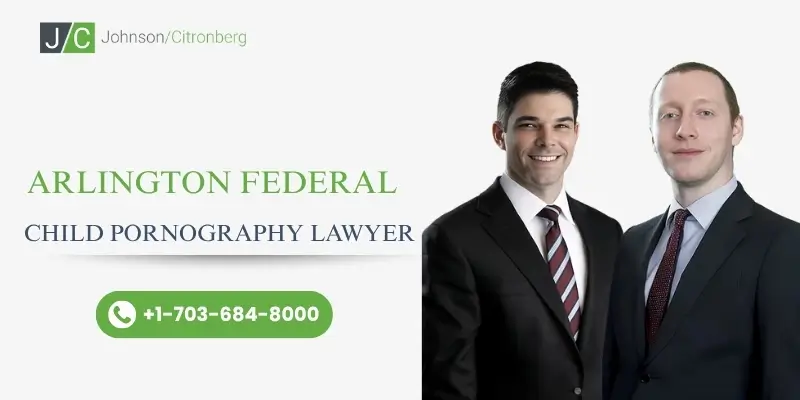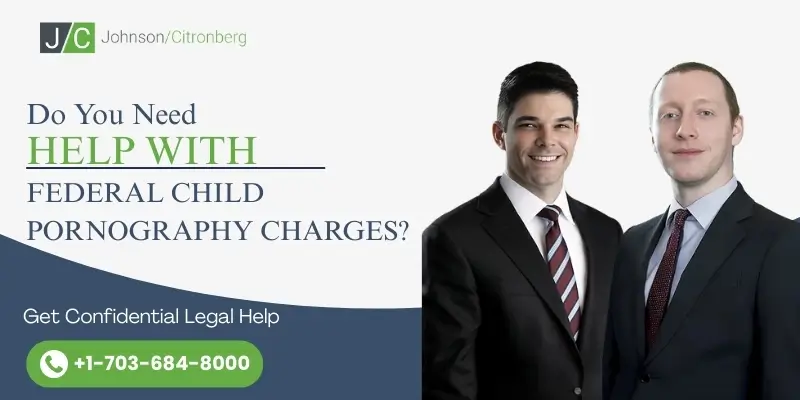Arlington Federal Child Pornography Lawyer
Federal Child Pornography Attorney in Arlington
An accusation of a criminal offense related to child pornography can have a serious and long-lasting impact on an individual’s life. If you are facing allegations, an experienced Arlington federal child pornography lawyer at Johnson/Citronberg, PLLC, has the experience, resources, and skills to get ahead of the allegations and minimize the negative impact that can come with a conviction, whether that means getting your charges dismissed or representing you at trial.
Our nationally recognized criminal defense attorneys have a proven record of success in complex federal cases. We work with leading forensic and investigative professionals to build strategic, individualized defenses for every client. If investigators have already reached out to you or seized your devices, knowing how to protect your privacy and reputation during a federal child pornography investigation can help you take the right steps before speaking with law enforcement.

Understanding Federal Child Pornography Laws
Various state and federal laws ban possessing, distributing, receiving, or producing child pornography. Child pornography is legally defined as an image of a person under 18 years old engaged in sexually explicit activity. This includes photographs, videos, computer files, simulations, animations, and altered images or videos.
In general, offenses are grouped under possession, distribution/receipt, or production of child pornography. Production is usually the most harshly punished, while possession, distribution, and receipt are often called non-production offenses, with less severe penalties. Conviction of a federal crime related to child pornography can result in incarceration for up to 30 years. These crimes can be described as follows:
- Possession is an offense that means someone has images involving child pornography in their possession. In other words, just having the images can be enough to warrant charges.
- Distribution/receipt is related to a person sending images or receiving images of child pornography. Distribution is usually punished more harshly than receipt.
- Production charges relate to creating or producing such an image and are generally considered the most severe of the charges. As such, it can also be more difficult to prove.
The most recent data shows that 45.8% of child pornography cases that resulted in sentencing were for possession, 43.1% were for distribution, and 11.1% were for receipt. Of the sentenced individuals, 99.5% went to prison, and the average sentence was 115 months.
Understanding how federal child pornography sentencing guidelines are applied can help clarify the factors courts consider when determining penalties.
Why You Should Fire a Federal Child Pornography Lawyer
When facing federal child pornography charges in Arlington, VA, the first step to set yourself up for a positive outcome is to hire a criminal defense lawyer who is well-versed in federal child pornography laws. In federal child pornography cases, the prosecutor must prove that the accused individual knowingly possessed the image or video. However, computer forensics experts can often show when a person didn’t knowingly download or view a file.
This means that in many cases, the defendant may be able to show that they didn’t know the illegal file was there. This is also known as an affirmative defense, meaning the defendant can show evidence that can explain or mitigate their actions. The following are some examples of possible defenses:
- Another person downloaded the file. If more than one individual has access to the device, it may be possible to show that someone besides the accused could have downloaded the file in question.
- Unintentional download. It is fairly common for a person to accidentally download or view child pornography while they are searching for legal pornography that only involves adults.
- Temporary files. Images from websites visited on a device are saved as temporary files on that device, whether it’s a cell phone, tablet, or computer. However, the existence of a temporary file does not necessarily prove that the defendant knew the file existed.
FAQs
Can Someone Be Charged Federally for Possessing Child Pornography Found Online?
Yes, in many cases, someone can be charged federally for possessing child pornography found online. Most cases dealing with the internet fall under federal jurisdiction because online activity often involves interstate or international commerce, even if the user is not aware of it. It is important to know that some cases may also include state-level charges. Your attorney can explain how the laws apply in your particular situation.
What Constitutes “Distribution” Or “Production” of Child Pornography Under Federal Law?
In Virginia distribution and production of child pornography are both illegal under federal law. Both charges include visual depictions that involve a minor engaged in sexually explicit conduct. Distribution of these images involves sharing them, whether by mail, the internet, or other means. Production of these depictions means creating images or videos, including altering or simulating existing depictions to include sexually explicit conduct.
What Is the Most Common Defense in a Federal Child Pornography Case?
The most common defense in a federal child pornography case in Virginia is that the prosecution’s evidence against the defendant does not prove beyond a reasonable doubt that the defendant committed the crime they are accused of. Depending on the facts of the case, this may mean challenging the validity of evidence, presenting mitigating factors, or questioning the legal procedures used by law enforcement officers.
How Does Law Enforcement Gather Digital Evidence in These Cases?
Law enforcement gathers digital evidence in child pornography cases by seizing electronic devices owned or used by the individual being accused. The devices are then analyzed, and evidence is preserved for use in prosecution. Understanding how the federal court process works in child pornography cases can help you see how investigators build these cases and what happens during the early stages of prosecution.
Experienced Arlington Federal Child Pornography Attorney
If you have been arrested or are being investigated for charges related to federal child pornography offenses, you do not have to face these allegations alone. A private criminal defense attorney can often begin representing you and advocating for your rights as soon as you are arrested or know of an investigation related to you. The sooner you hire a federal child pornography lawyer, the more time it gives you to develop an effective legal defense strategy.
Don’t allow false accusations of child pornography offenses to ruin your reputation. The skilled and compassionate legal team at Johnson/Citronberg, PLLC, has extensive experience with federal criminal cases, and we are committed to making sure each client gets the top-quality legal representation they need. Reach out to our office right away to set up your initial consultation and learn your legal options.



